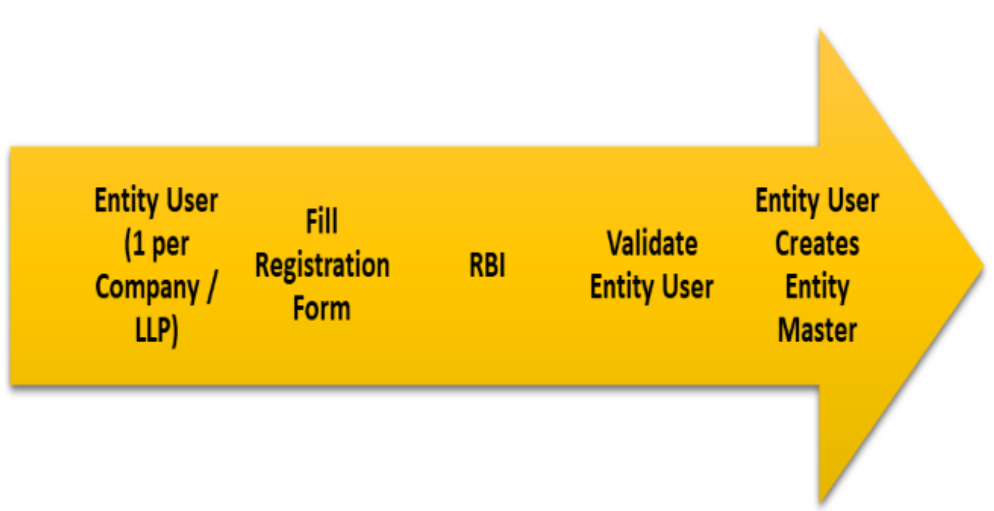Avoid Deactivation / Defunct
As future is always uncertain, it is better to complete all DIR-3-KYC and ITR filings before 31st August 2018. It is always safe to avoid penalties and misfortunes. One of the punishment of not filing Annual Returns with ROC will be considering the Company to be defunct and striking-off. Consequently, the DIN of the of the Directors will be considered as Default. The process of such strike-off and after effect were detailed in this month’s edition.
The article will follow with the our usual Legal terms and News Bites related to notifications by MCA, SEBI, RBI, IT and GST.
![]() Saranya Deivasigamani,
Saranya Deivasigamani,
CEO
Closure of Company
It is well known that every year the Companies incorporated in India should close it’s financials on 31st March and file it’s Income Tax Return before 31st July and conduct AGM to adopt the accounts within 6 months of closure of books and file ROC returns in respective forms. If the Companies fails to submit such returns, the Registrar of Companies (“ROC”) shall vide Section 248 (5) of the Companies Act, 2013 (“Act”) strike off the name of the Company from the register of Companies. In this article, we will be seeing about the procedure that the name of the Company be struck-off from the register of Companies maintained by the ROC. The procedure of strike off can be done only through Strike-off mode and Fast Track Exit (FTE) mode is no longer exist. The provisions relating to Strike Off provide an opportunity to the defunct Companies to get their names struck off from the records of the ROC.
MODES OF STRIKE OFF
There are two modes of strike off under the provisions of the Act and Rules such as: 1. By ROC itself under Section 248(1) of the Act; and 2. By way of filing application by the Company under Section 248(2). For the purpose of this article, Strike-off u/s 248 (1) and its remedial actions were discussed.
1. STRIKE OFF BY ROC U/S 248(1)
1. 1. Power of removal of name by ROC:
Section 248(1) of the Act provides that, “where the ROC has reasonable cause to believe that:
(a) a Company has failed to commence its business within one year of its incorporation; [or]
(b) a Company is not carrying on any business or operation for a period of two immediately preceding financial years and has not made any application within such period for obtaining the status of a dormant Company under section 455, he shall send a notice to the Company and all the Directors of the Company, of his intention to remove the name of the Company from the register of Companies and requesting them to send their representations.” Accordingly, the ROC may initiate the process of Strike Off if the Company has failed to commence its business within one year of its incorporation or had not been doing business or operation for last two financial years and has not applied with the ROC for the status of dormant Company.
1.2. Companies Excluded from Applicability of the provisions of Strike off:
The following categories of Companies shall not be removed from the register of Companies under rule 3 and 4 in terms of section 248(1) by the ROC:-
(i) Listed Companies;
(ii) Companies that have been delisted due to non-compliance of listing regulations or listing agreement or any other statutory laws;
(iii) Vanishing Companies;
(iv) Companies where inspection or investigation is ordered and being carried out or actions on such order are yet to be taken up or were completed but prosecutions arising out of such inspection or investigation are pending in the Court;
(v) Companies where notices under section 234 of the Companies Act, 1956 (1 of 1956) or section 206 or section 207 of the Act have been issued by the Registrar or Inspector and reply thereto is pending or report under section 208 has not yet been submitted or follow up of instructions on report under section 208 is pending or where any prosecution arising out of such inquiry or scrutiny, if any, is pending with the Court;
(vi) Companies against which any prosecution for an offence is pending in any court;
(vii) Companies whose application for compounding is pending before the competent authority for compounding the offences committed by the Company or any of its officers in default;
(viii) Companies, which have accepted public deposits which are either outstanding or the Company is in default in repayment of the same;
(ix) Companies having charges which are pending for satisfaction; and
(x) Companies registered under section 25 of the Companies Act, 1956 or section 8 of the Act.
1.3. Procedure to be followed by ROC for strike off by its own motion:
The ROC has to follow the following procedures for strike off by its own motion:
a) Serving of Notice: ROC shall sent a notice in writing in Form STK – 1 to all the Directors of the Company at the addresses available on record, by registered post with acknowledgement due or by speed post. The notice shall:
- contain the reasons on which the name of the Company is to be removed; and
- seek representations, if any, against the proposed action from the Company and its Directors along with the copies of relevant documents, if any, within a period of thirty days from the date of the notice.
b) Representation of Company: The ROC shall consider the representation of the Company if it has received the same. If the ROC is not satisfied with the representation made by the Company and its Directors, it may proceed further for the strike off the name of Company.
c) Publication of notice: the notice for removal of name u/s 248 (1) shall be in Form STK 5 and the same be –
- placed on the official website of the MCA on a separate link established on such website in this regard;
- published in the Official Gazette;
- published in English language and at least once in vernacular language, both having wide circulation in the State in which the registered office of the Company is situated.
d) Intimation to regulatory authorities: The ROC shall simultaneously intimate the concerned regulatory authorities regulating the Company, about the proposed action of removal or striking off the names of such Companies and seek objections, if any, to be furnished within 30 days of notice.
e) Strike off the name and publish notice of dissolution of the Company: in accordance with section 248 (5), the ROC may, at the expiry of the time mentioned in the notice, unless cause to the contrary is shown by the Company, strike off its name from the register of Companies, and publish notice thereof in the Official Gazette. The Company shall stand dissolved on the publication of this notice in the Official Gazette.
f) Sufficient provision has been made for realization of all amounts due: ROC, before striking off, shall satisfy itself that sufficient provision has been made for realization of all amounts due to the Company and for the payment or discharging of its liabilities.
1.4. Effect of Company notified as dissolved:
As per Section 250 of the Act, if a Company stands dissolved under section 248, it shall on and from the date mentioned in the notice of dissolution, cease to operate as a Company and the Certificate of Incorporation issued to it shall be deemed to have been cancelled from such date except for the purpose of realizing the amount due to the Company and for the payment or discharge of the liabilities or obligations of the Company.
1.5. Liabilities of Directors, managers, officers and members to be continue:
The liability, if any, of every Director, manager or other officer who was exercising any power of management, and of every member of the Company dissolved under this section, shall continue and may be enforced as if the Company had not been dissolved.
2. RESTORATION ORDER
Section 252 of the Act empowers the Tribunal, to pass an order for the restoration of Company which has been struck off by the ROC, in the following manner:
2.1. On appeal filed by any person:
Any person aggrieved by the order of the ROC may file an appeal before the Tribunal within 3 years of the order passed by ROC and if the Tribunal is of the opinion that the removal of name of Company is not justified in view of the absence of any of the grounds on which the order was passed by the ROC, it may pass an order for restoration of the name of the Company in the register of Companies after giving a reasonable opportunity of making representations and of being heard to the ROC, the Company and all the persons concerned.
2.2. On application filed by ROC:
The ROC may, within a period of three years from the date of passing of the order dissolving the Company under section 248, file an application before the Tribunal seeking restoration of name of such Company if it is satisfied that the name of the Company has been struck off from the register of Companies either inadvertently or on the basis of incorrect information furnished by the Company or its Directors.
2.3. On application filed by Company or any member or creditor or workmen:
The Tribunal, on an application made by the Company, member, creditor or workman before the expiry of 20 years from the publication in the Official Gazette of the notice of dissolution of the Company, if satisfied that:
a) the Company was, at the time of its name being struck off, carrying on business or in operation; or
b) otherwise it is just that the name of the Company be restored to the register of Companies,
may order the name of the Company to be restored to the register of Companies. Further, the Tribunal may also pass an order and give such other directions and make such provisions as deemed just for placing the Company and all other persons in the same position as nearly as may be as if the name of the Company had not been struck off from the register of Companies.
By providing restoration provisions, the Company which has been struck off may get a chance to restore its name in the register and get active with the permission of Tribunal. The Companies are required to take due care while receiving such notices and it should be kept in mind that strike off does not relieve the Directors and members from their liabilities. And the Directors will not be able to create any new Companies or proceed with any filing in ROC for a period of 5 consecutive years. These consequences can be avoided by Company going under voluntary Strike-off before receiving ROC notice u/s 248 (2).
Legal Term
Entrapment
The action of tricking someone into committing a crime in order to secure their prosecution.

MCA Updates
- Commencement of Section 5, 6, 10, and 36 of the Companies Act.
- Order regarding Constitution of “Committee to review offences under Companies Act, 2013” dated 13.07.2018.
SEBI Updates
- Enhanced monitoring of Qualified Registrars to an Issue and Share Transfer Agents.
- Role of Sub-Broker (SB) vis-a-vis Authorized Person (AP).
RBI Updates
- Diversification of activities of Standalone Primary Dealers-Foreign Exchange Business.
Income Tax Updates
- DTAA with Qatar.
GST Updates
- No major notifications.





 '
'